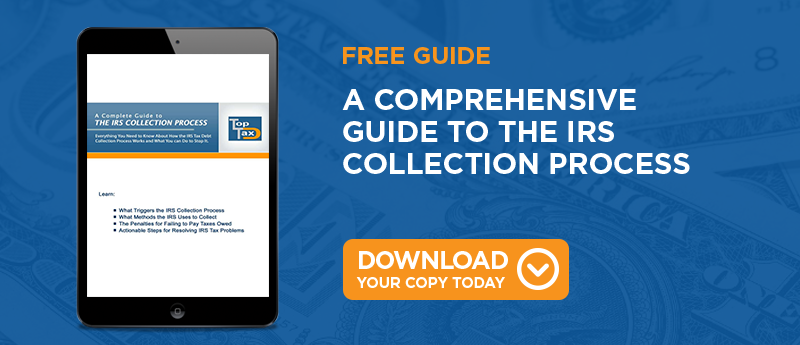%20Hearings.jpg?width=1000&name=IRS%20Tax%20Collection%20Appeals%20Collection%20Due%20Process%20(CDP)%20Hearings.jpg)
Are you facing an impending IRS collection? If so, you may feel that you have no choice but to accept the decision. However, the agency does give taxpayers the option to appeal IRS decisions relating to collections. Taxpayers do not have to fear that their appeals will be tossed aside. The agency handles appeals in a completely separate department from collections, and the two groups are forbidden by law to communicate. This precaution ensures that taxpayers receive a fair appeals hearing.
When Can You Use the Collection Due Process Appeal?
The primary way that many taxpayers appeal their collection notices is through the IRS Collection Due Process (CDP). This arrangement is available to taxpayers who have received either a notice of federal tax lien or a notice of intent to levy from the IRS.
The CDP is not the only arrangement for collections appeals. The IRS also provides for a separate arrangement called the Collection Appeals Program (CAP). However, the CDP is generally quicker than the CAP, which entices many taxpayers to use it. The catch with the CDP is that you cannot take the case to court if you disagree with the hearing decision. Since the CDP hearing is a legal and financial matter, you have the option of representing yourself or hiring outside counsel such as a tax attorney or a certified public accountant (CPA). If you meet certain income requirements, you may even qualify for free financial representation from the Low-Income Taxpayer Clinic (LITC).
IRS Collection Due Process Hearings for Liens and Levy Notices
As mentioned earlier, the CDP arrangement is only available for notices of intent to levy or notices of federal tax liens. You can only receive one hearing, so be sure to arrange your case carefully to make your argument as thoroughly as possible. If you receive a final notice of tax lien from the IRS, you'll have a 30-day window to request a hearing after receipt of the notice. If you receive a final notice of intent to levy, you'll also have a 30-day appeal window. However, in a few cases, you may be able to request a hearing even after the levy has been imposed, such as when the IRS levies your state tax refund.
To request an appeal hearing, you'll need to complete Form 12153 "Request for a Collection Due Process" and submit it to the IRS. Be sure to include your reasons for requesting the hearing and why you feel the IRS collection action is unfair or incorrect. If you don't agree with the hearing decision, you can request a judicial review. However, you may be unable to bring in new evidence, so be sure to present it all during the hearing.
The IRS Collections Due Process gives taxpayers who are facing an IRS tax levy or lien the chance to appeal the agency's decision. If you need assistance putting a case together, consult an experienced tax attorney or CPA for help.




